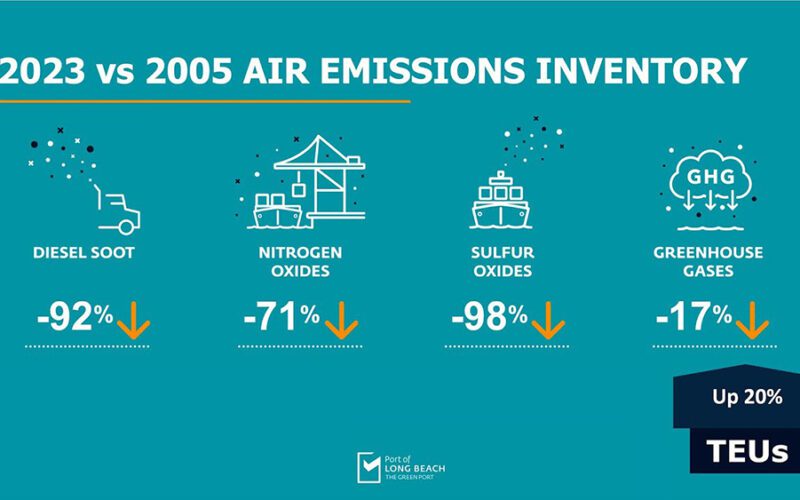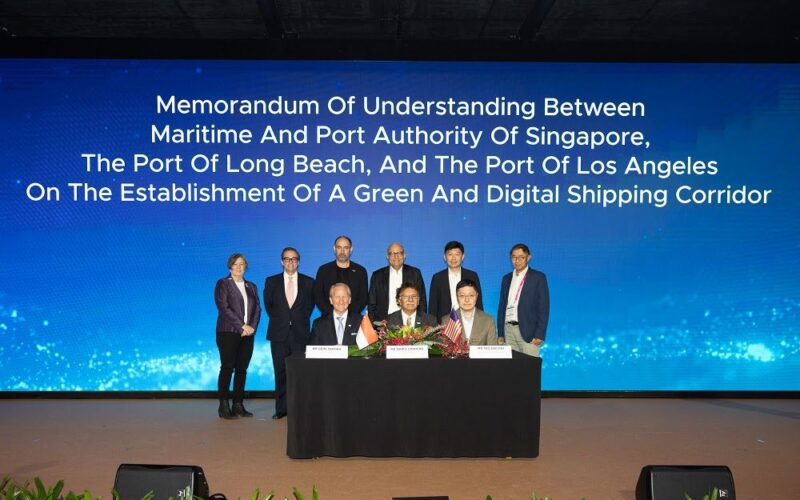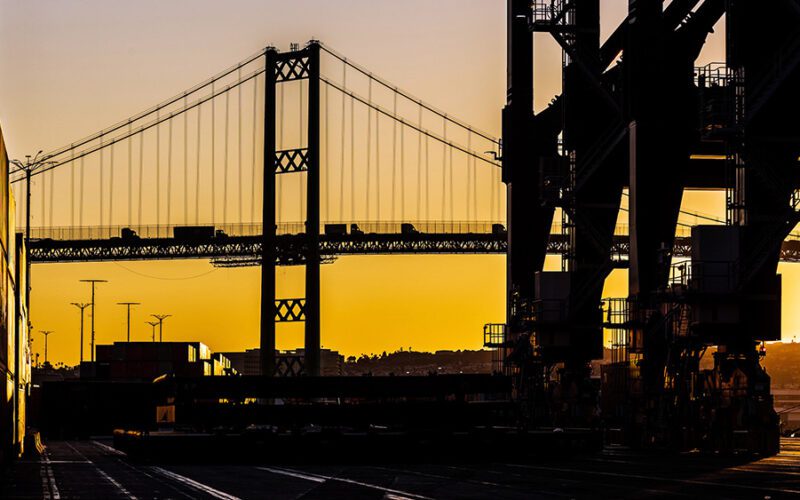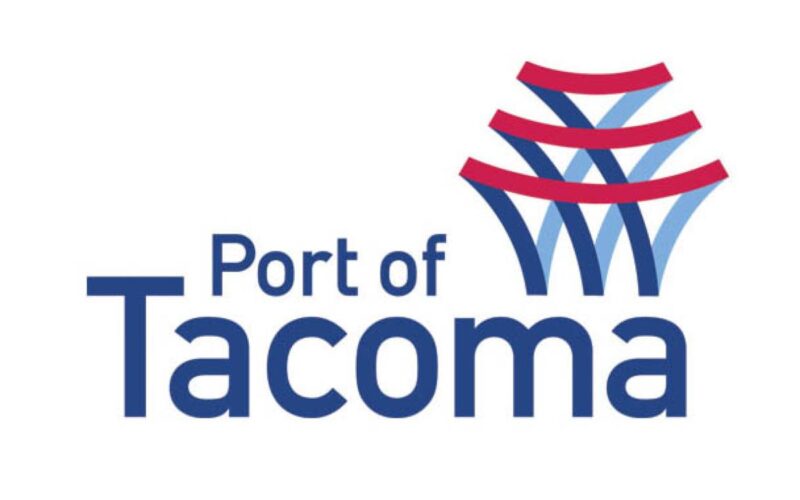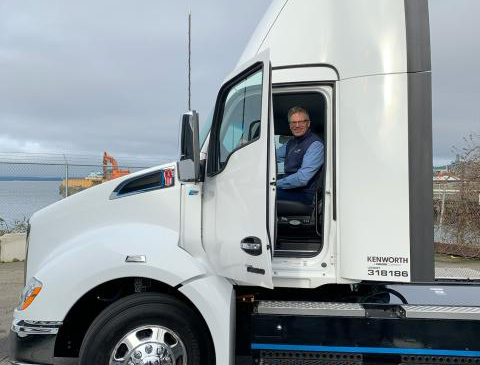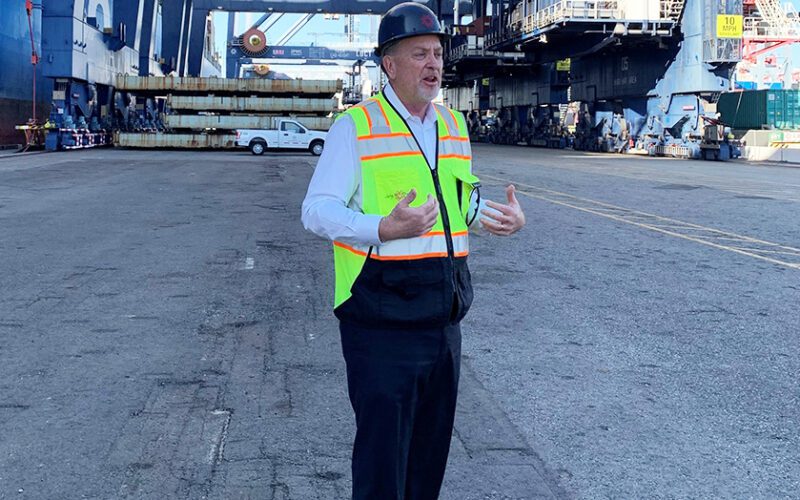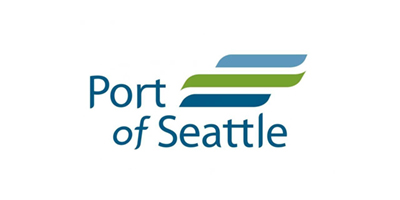15
Oct
The Los Angeles and Long Beach seaports saw some of the most significant drops in air emissions last year since 2005, according to the ports’ 2023 emissions inventories, the results of which were released Sept. 23. When compared to their 2005 baseline year, the nation’s two busiest seaports reported a 91% reduction of diesel particulate matter (DPM), a 72% reduction in nitrogen oxides (NOx), a 98% drop in sulfur oxides (SOx) and a 20% drop in greenhouse gas (GHG) emissions, putting the ports ahead of their Clean Air Action Plan targets. Pacific Merchant Shipping Association touted the “unprecedented improvements in…

